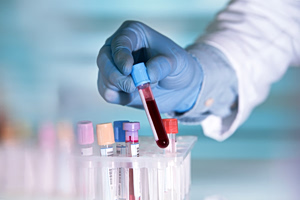A storm of controversy is swirling over the humble glass of milk.
Multiple servings of milk, cheese or yogurt have long been a staple of American nutrition advice . Now a growing number of researchers and doctors say you need less dairy than you think, and maybe even none at all.
The U.S. government, which recommends that adults eat three servings of dairy a day, is taking a fresh look at its guidance. A committee of scientific advisers is analyzing diets with lower amounts of dairy to study what happens to people’s nutrient levels. That is the first step toward possibly changing the recommendation in the next update of the country’s dietary guidelines . Other countries already recommend less dairy than the U.S. does.
The problem? Dairy-rich diets have been linked to increased risks of cardiovascular disease and certain cancers in some studies. Foods like ice cream, full-fat cheese and pizza are high in calories and saturated fat.
However, the research isn’t clear-cut. Some studies link dairy foods to a lower risk of heart disease, some cancers and Type 2 diabetes. When it comes to milk, scientists can’t agree on whether full fat or skim is better.
Long story short: Go ahead and enjoy your Greek yogurt and that mozzarella in your caprese salad. Just don’t have too much; some experts say one serving a day—one cup of yogurt or 1.5 ounces of the cheese—is good.
A lot depends on what the rest of your diet looks like, nutrition experts say. The main reason to eat dairy is to get calcium, which helps build and maintain bone, and is especially important for children and women over 50. But calcium can come from other sources, like fortified soy milk, tofu, kale, edamame and bok choy.
And much of our dairy consumption happens in the form of pizza and cheese-laden deli sandwiches. Better sources are foods that aren’t ultra-processed or high in sugar —plain yogurt, for instance.
If you’re eating dairy instead of fruits, vegetables, beans and whole grains, that’s unwise. But if you’re eating milk, yogurt and cheese instead of processed meat, cupcakes and soda, “that’s probably going to be beneficial,” says Dr. Walter C. Willett , a professor of epidemiology and nutrition at the Harvard T.H. Chan School of Public Health.
Health effects of dairy
One reason we don’t have definitive answers on dairy: Many studies are observational, meaning scientists ask people what they eat and look at their health over time. That approach makes it hard to discern the effects of one type of food, says Lindsey Smith Taillie , associate professor in the nutrition department at the University of North Carolina’s Gillings School of Global Public Health. In addition, the dairy industry funds some of the research.
Still, some useful findings have emerged. There is evidence that a diet high in dairy may lower the risk of colon cancer . The calcium and vitamin D seem to inhibit the growth of cancer cells in the colon, says Carrie Daniel , a nutritional epidemiologist at MD Anderson Cancer Center. Certain fatty acids in dairy may also have an anti-inflammatory effect, she says, which can reduce cancer risk.
By contrast, dairy consumption also is linked to a higher risk of prostate cancer. Dairy foods may increase the level of insulinlike growth factor, a hormone that may fuel prostate cancer growth, Daniel says.
A statement from the president of the National Dairy Council, a research organization funded by dairy farmers, said, “Dairy foods are a cornerstone of a balanced diet, backed by decades of rigorous, peer-reviewed research demonstrating their role in supporting overall health.”
The right amount of calcium
Dairy foods are the primary source of calcium in the American diet, says Janet de Jesus , senior nutrition adviser at the Office of Disease Prevention and Health Promotion at the U.S. Department of Health and Human Services, the agency leading the dietary guidelines process. Most Americans don’t meet the current dairy recommendations, and many people are lactose intolerant.
Some scientists question the government’s current calcium recommendations. Several studies haven’t shown a link between higher calcium intake and a reduced risk of bone fractures, Willett notes.
The U.K., for example, advises that adults have 700 milligrams of calcium a day. The U.S. recommends 1,000 milligrams a day for adult women 50 and under, and adult men 70 and under, and more for older women or those who are pregnant or breast-feeding.
How to square that in your own life? For most adults who eat a relatively healthy diet, one daily serving of yogurt, milk or cheese is probably best, says Willett.
You’ll get about 350 milligrams of calcium from one serving of dairy and another 300 milligrams or so from other foods you eat during the day, he says. For children, most nutrition researchers say dairy may be more important as they build bones.
Low-fat or full-fat?
The debate between low-fat and full-fat dairy has crescendoed in recent years. U.S. dietary guidelines and the American Heart Association recommend lower-fat dairy products, such as low-fat milk. Whole milk and full-fat yogurt and cheese are higher in saturated fat, which raises your “bad” cholesterol, a risk factor for cardiovascular disease. Whole-fat dairy is generally higher in calories too.
But some recent studies comparing low-fat and full-fat dairy consumption haven’t found much difference in health outcomes. There is evidence that the impact of saturated fat on blood cholesterol is more complicated than previously understood.
The average healthy person should choose whichever fat level they prefer, says Dr. Dariush Mozaffarian , a cardiologist and professor of nutrition and medicine at Tufts University. People with a history of high cholesterol might want to stick with low-fat dairy products, he notes. Mozaffarian served as a scientific consultant to Danone , which makes yogurt, for the company’s submission to the Food and Drug Administration of research supporting a health claim for the benefits of yogurt for reducing the risk of Type 2 diabetes.
If a little whole-fat cheese is going to make you eat that big salad or fruit-and-veggie plate, go for it, says Maya Vadiveloo , associate professor in the department of nutrition at the University of Rhode Island and chair of the American Heart Association’s Lifestyle Nutrition committee.
Keep in mind, too, that many nonfat and low-fat dairy products contain added sugars, fillers and other additives, Daniel notes. “Choose dairy that has been the least messed with,” she says.
Yogurt may be the healthiest choice of dairy foods, recent studies suggest. Yogurt contains probiotics, live bacteria that can improve the health of your gut microbiome. Probiotics help with weight loss and blood-sugar control, says Mozaffarian.
Write to Andrea Petersen at andrea.petersen@wsj.com







